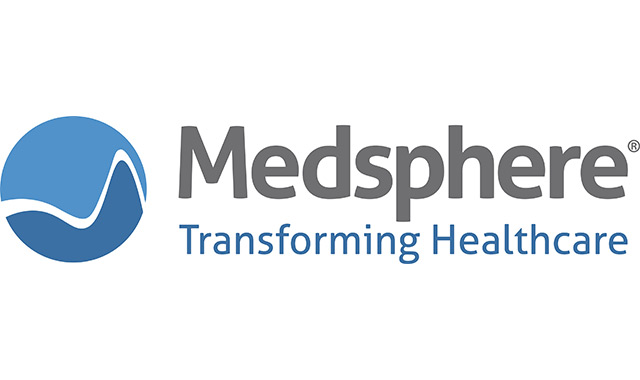
When people in healthcare use the phrase ‘patient engagement,’ they mean involving patients more in their own care, perhaps urging them to be more responsible for their own health.
From a costs perspective, this makes sense. No one argues that the healthcare system is not rife with waste and duplication, and much of the treatment would be unnecessary if patients paid attention to their health well before dramatic efforts are the only remaining option. Also unarguable is the impact healthcare has on the American economy as it steadily gobbles up higher shares of national revenue.
But simply identifying patient engagement as one solution to systemic healthcare challenges achieves little. Sure, Americans would have fewer health problems if they ate better, lost weight, took their medications regularly and got more sleep, but most everyone already agrees on that. Human behavioral change is difficult and gradual, and it happens through incremental approaches, not general pronouncements.
So what tactics can hospitals and providers use to shift some responsibility onto patients themselves?
- Teach patients to do what they can. In a fascinating example, a hospital in Sweden transitioned more than half of dialysis patients to a self-management program after a single patient asked for control of his own care.“Shortly afterward, the patient was managing his own dialysis and experiencing fewer side effects of the treatment, such as nausea, edema and hypotension,” according to an American Hospital Association case study. “The patient and the nursing staff took this success to the next level and began training other dialysis patients interested in self-dialysis.”
Similarly, Dallas’s Parkland Memorial Hospital began a program in 2009 that trained patients on long-term antibiotic therapy to administer the drugs to themselves at home. The benefits of the program today include shorter hospitals stays, lower readmissions and millions of dollars saved while still achieving comparable outcomes.
- Change the dialogue with patients. For decades, medicine has used the language of subject or actor and object—the doctor applies his wisdom and knowledge; the patient accepts the treatment. Arguably, this manner of speaking about the doctor/patient relationship has contributed to a level of patient passivity.“Under that outdated model, patients were expected to comply with treatment plans, not contribute to the development of them,” writes Ginny Adams, a clinician and consultant. “Certainly, we as clinicians meant well, but our style of caring was sometimes distant and too directive.”
The language of medicine often widens the gap between physician and patient. If doctors and nurses want patients to be more involved in their own care, they must take the time to explain in layman’s terms. If patients want to truly understand their situation, they must ask clinicians for more explanation and understandable language.
- Engage technologically. Especially for younger generations, communication is now the product of more applications and devices than even the savviest consumer can keep track of. If healthcare organizations want to embed in the lives of patients, there needs to be some adapting to the predominant media of the day.What does that mean, specifically? Should hospitals be on Instagram? Probably not, but that’s a decision for each provider and organization. It does mean patients should have access to a robust patient portal (see more on the benefits of long-term portal use here) that enables viewing of records, scheduling, communication with providers and paying bills. It might also be helpful if patients could see an explanation of their records; for most, blood on the brain is more understandable than subdural hematoma.
- Partner with the community. As healthcare shifts to a more consumer-oriented and patient-focused model, it’s hard to not see most healthcare organizations as population health entities. Sure, we’re talking about how patients can take on more of the responsibility for their own health, but that has to include making sure they have the information and knowledge necessary to do so.Wisconsin’s Bellin Health, for example, engaged with the local community through The Live Algoma Coalition, a partnership that includes local businesses and government, the school district and community agencies. With grant funding from the Institute for Healthcare Improvement, the Algoma Coalition will “help communities further their capability to improve the health of targeted populations and develop ways to share and spread community-driven approaches across the country.”
Beyond engaging in strategies to improve patient engagement, it might also help if we could alter our perspective of medicine and caregivers.
“We have a certain heroic expectation of how medicine works,” Atul Gawande, MD, writes in a recent New Yorker article. “We built our health-care system, accordingly, to deploy firefighters. Doctors became saviors.
“But the model wasn’t quite right. If an illness is a fire, many of them require months or years to extinguish, or can be reduced only to a low-level smolder. The treatments may have side effects and complications that require yet more attention. Chronic illness has become commonplace, and we have been poorly prepared to deal with it. Much of what ails us requires a more patient kind of skill.”
In other words, because we too often view doctors as fire fighters, by the time many of us ask for help, the house has already burned to the ground.
Realizing the kind of patient engagement we’re talking about is no easy task, to be sure. While pursuing it, we also have to deal with ancillary concerns: making EHRs work effectively, expanding health insurance so citizens have access to care, integrating physical and behavioral health to reduce comorbidities. And that doesn’t even address the fact that changing attitudes and behaviors across a large, diverse society is more challenging than doing an about face in an ocean liner.
But the evidence for moving forward is clear. Engaged patients are healthier and more active. Health systems and practices that engage patients reduce costs. Communities with embedded healthcare organizations are more cohesive. In a society that measures success in hours and days, not months and years, it will be crucial to highlight the victories along the way and enable both patients and caregivers to celebrate improvements. Hopefully, a society that celebrates the individual might see the value in a self-empowered approach from the very start.
Irv Lichtenwald is president and CEO of Medsphere Systems Corporation, the solution provider for the OpenVista electronic health record.






























